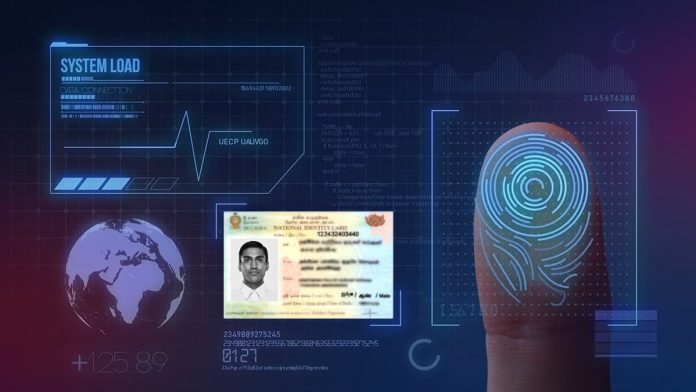By: Staff Writer
May 27, Colombo (LNW): Sri Lanka is moving closer to launching its long-awaited biometric national identity system, with the final batch of high-security polycarbonate cards expected to arrive by the end of June.
The Department for Registration of Persons has confirmed that the remaining 400,000 cards, supplied by French technology firm Thales, will soon be in hand, paving the way for the full-scale deployment of the Electronic National Identity Card (e-NIC) initiative.
The e-NIC project represents a major technological leap in the country’s approach to identity verification, promising to replace traditional paper-based documents with tamper-proof cards embedded with biometric data. Each card will store the holder’s fingerprint, iris scan, and facial features—data that will be used to uniquely identify individuals across public and private sector systems.
M.S.P. Suriyapperuma, Director General of the Department for Registration of Persons, noted that the legal foundation for this transformation already exists under the current National Identity Card Act. However, the biometric features can only be officially activated once the President, who also holds the Digital Ministry portfolio, issues the relevant gazette notification. Suriyapperuma confirmed that this activation is now imminent, with the necessary provisions soon to be formalised.
The new identity system goes beyond mere security enhancements. It is designed to integrate with the broader Sri Lanka Unique Digital ID framework, consolidating disparate forms of identification under a single system. In addition to basic personal data, the card will link to other official records such as birth certificates, tax identifiers, and even electoral information, creating a centralised database intended to support streamlined service delivery and improved governance.
According to officials, the digitisation of identity is seen as a foundational step towards enabling more efficient and accountable policymaking. By enabling data-driven governance, authorities hope to better allocate resources, monitor compliance, and facilitate inclusive access to state services. The cards will also play a key role in the verification of citizens in a variety of contexts, from healthcare and education to financial transactions and welfare disbursements.
To ensure the success of the rollout, extensive awareness campaigns are currently being undertaken. These are targeted not only at state institutions but also at private enterprises that may be called upon to verify identity in areas such as banking, insurance, and telecommunications.
Officials from the Information and Communication Technology Agency (ICTA) stressed the importance of building institutional readiness and public understanding to support the transition.
Thales, the French multinational contracted to deliver the physical cards, is among the global leaders in secure digital identification systems. The company claims to be responsible for one in three civil IDs produced globally each year and has worked with numerous governments to develop secure identity infrastructures. The firm’s Civil Identity Suite has been deployed worldwide to facilitate both digital and physical ID issuance.
With Sri Lanka edging closer to adopting a fully digital identity framework, the initiative is being closely watched both domestically and abroad. It represents not just a technical upgrade, but a significant shift in how identity is conceptualised, authenticated and managed in the modern state.
Once implemented, the e-NIC is expected to serve as the cornerstone of a digital society—one in which access to rights, benefits and opportunities is underpinned by secure, verifiable identity.

